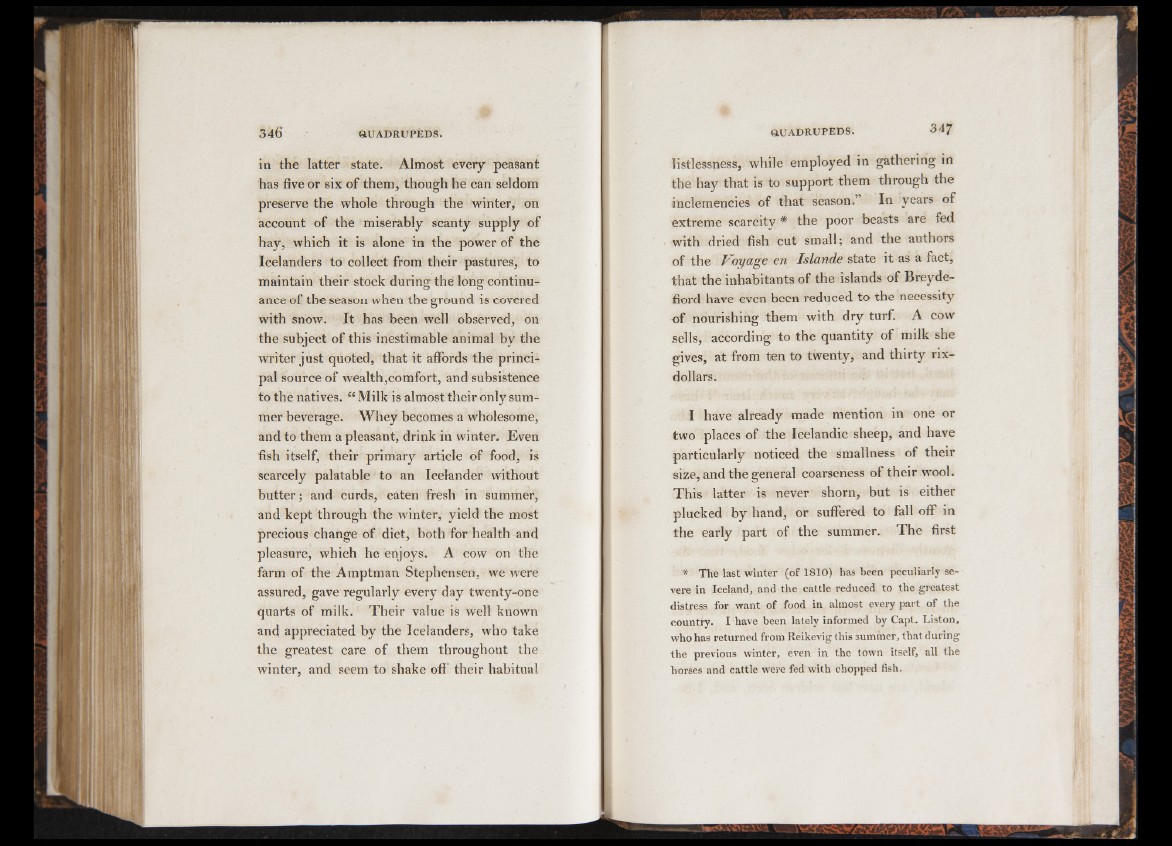
in the latter state. Almost every peasant
has five or six of them, though he can seldom
preserve the whole through the winter, on
account of the miserably scanty supply of
hay, which it is alone in the power of the
Icelanders to collect from their pastures, to
maintain their stock during the long continuance
of the season when the ground is covered
with snow. It has been well observed, on
the subject of this inestimable animal by the
writer just quoted, that it affords the principal
source of wealth,comfort, and subsistence
to the natives. “Milk is almost their only summer
beverage. Whey becomes a wholesome,
and to them a pleasant, drink in winter. Even
fish itself, their primary article of food, is
scarcely palatable to an Icelander without
butter; and curds, eaten fresh in summer,
and kept through the winter, yield the most
precious change of diet, both for health and
pleasure, which he enjoys. A cow on the
farm of the Amptman Stephensen. we were
assured, gave regularly every day twenty-one
quarts of milk. Their value is well known
and appreciated by the Icelanders, who take
the greatest care of them throughout the
winter, and seem to shake off their habitual
listlessness, while employed in gathering in
the hay that is to support them through the
inclemencies of that season. In years of
extreme scarcity * the poor beasts are fed
with dried fish cut small; and the authors
of the Voyage en Islande state it as a fact,
that the inhabitants of the islands of Breyde-
fiord have even been reduced to the necessity
of nourishing them with dry turf. A cow
sells, according to the quantity of milk she
gives, at from ten to twenty, and thirty rix-
dollars.
I have already made mention in one or
two places of the Icelandic sheep, and have
particularly noticed the smallness of their
size, and the general coarseness of their wool.
This latter is never shorn, but is either
plucked by hand, or suffered to fall off in
the early part of the summer. The first
* The last winter (of 1810) has been peculiarly severe
in Iceland, and the cattle reduced to the greatest
distress for want of food in almost every part of the
country. I have been lately informed by Capt. Liston,
who has returned from Reikevig this summer, that during
the previous winter, even in the town itself, all the
horses and cattle were fed with chopped fish.